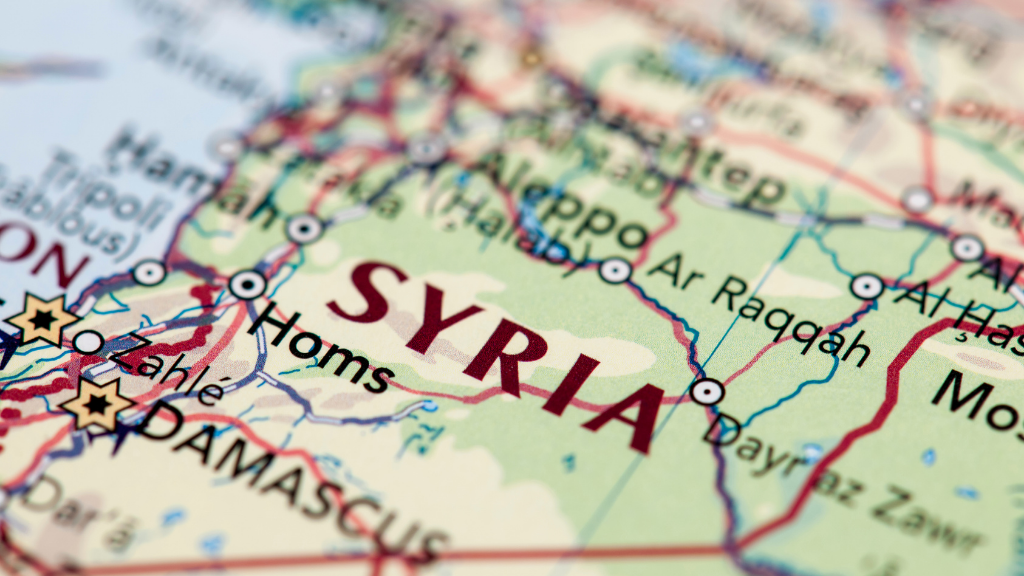US to provide more than $800M in new humanitarian assistance to Syria

By Kylie Atwood, CNN
(CNN) -- The US is providing more than $800 million in new humanitarian assistance to the Syrian people to continue helping those impacted by the Syrian war, US Ambassador to the United Nations Linda Thomas-Greenfield announced while speaking in Brussels at a conference to support Syria.
"This war has been going on for 10 years and ordinary Syrians are suffering. People are starving. Medical supplies are not getting through. The US is the largest humanitarian donor across the board. And this is a core value for the United States to support people in need, wherever they are," Thomas-Greenfield told CNN exclusively.
The new funding -- the largest amount the US has ever donated at this Syria conference in Brussels -- comes as the humanitarian crisis in Ukraine also continues to grow, with millions of refugees fleeing the country due to Russia's invasion.
"The assistance to Syria will not in any way be affected by what we're doing in Ukraine. And this pledge we're making shows that," Thomas-Greenfield said.
"This assistance demonstrates that, even as we work to address other conflicts around the world, the United States maintains our unshakable commitment to the Syrian people, their humanitarian needs, their call for accountability, and their aspirations for freedom and dignity," Thomas-Greenfield said at the conference in Brussels. She told CNN that the assistance for Syria would not be affected by the continued US support for Ukraine.
There are mounting concerns about keeping open the Bab al-Hawa border crossing from Turkey to Syria, which is the single border crossing that is now open for humanitarian aid. A UN Security Council resolution to keep it open for a year will expire in July. The topic of this border crossing will be front and center at the UN Security Council in the months ahead.
Thomas-Greenfield on Tuesday called for that crossing to remain open, given the life-saving support it enables. She also called for expanded access to Syria for humanitarian support.
"This is a matter of life and death," she said at the conference.
It is unclear if Russia -- which has resisted keeping open border crossings into Syria in the past -- will support keeping the crossing open this time.
"We think it's in Russia's interest to keep that border crossing open," Thomas-Greenfield told CNN, "because otherwise you're going to have millions of people starve to death in Syria. And they're inside and the Syrian regime is responsible as well. That border crossing provides essential medicines, food, water for Syrians, not just at the border but deep inside of Syria as well."
Thomas-Greenfield said that the US has supported assistance coming from Syrian controlled parts of Syria into other parts of the country this year but reiterated that the border crossing needs to remain open.
"We've also supported in our negotiations with the Russians last year, that we would support cross-line humanitarian assistance. Humanitarian assistance coming from the Syrian controlled parts of Syria into the other parts of Syria. That has worked somewhat this past year, but can't replace the cross-border assistance," she said.
When it comes to Russia's involvement in the Ukraine war and the Syrian War, Thomas-Greenfield also said that Moscow's move to put the "Butcher of Syria" Alexander Dvornikov in command of Russia's assault on Ukraine is another example of Russian brutality. She added that the fact that he is still allegedly committing war crimes is "certainly something that the world has to address moving forward."
In recent weeks, Syria's representative to the UN encouraged the world not to forget about the country.
"The current strategic stalemate on the ground and Syria's absence from the headlines should not mislead anyone into thinking that the conflict needs less attention or fewer resources, or that a political solution is not urgent," UN Envoy for Syria, Geir Pedersen, said. He explained that because there are 6.8 million refugees and 6.2 million IDPs (internally displaced persons) as a result of the Syrian war -- which is half the pre-war population -- there is a whole generation in Syria that has been "born and brought up in displacement."
The Biden administration has faced scrutiny for not having a comprehensive Syria policy. During the Obama administration, the US policy was that Syrian President Bashar al-Assad must go. But that is not a line that US officials explicitly echo today.
"Assad is in place, but we have been very, very clear that to have a political solution, there has to be accountability. And Assad has to take some responsibility -- in fact, all responsibility for what is happening on the ground in Syria," Thomas-Greenfield said when asked if there could be a political solution with Assad in place.
She did not commend the engagement some regional players -- such as the UAE and Jordan -- have had with Assad in recent months.
"We don't think that the time is right at this moment to normalize relations with Assad. There are still critical issues that need to be addressed before normalization takes place. But again, we're very supportive of efforts to find a political solution moving forward," she said.
Still, she noted the importance of the regional players in finding a solution for Syria.
"In all of these situations, Ukraine included, the regional neighbors are important and so, in Syria, how the neighbors engage on this is key to how quickly we're able to achieve some progress there," she said.
The-CNN-Wire
™ & © 2022 Cable News Network, Inc., a WarnerMedia Company. All rights reserved.